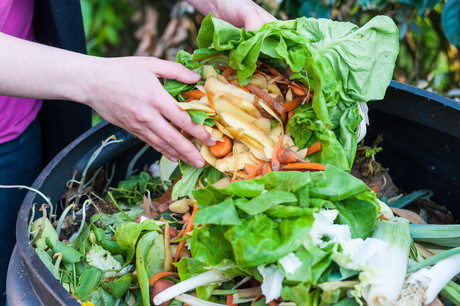Taking a leaf out of the local recycled organics book

How can the lessons learned with recycled organics help the rest of the resource recovery industry refocus post China Sword Policy?
The impact of China’s Sword Policy has been devastating to councils and the resource recovery industry, but there’s a strong chance it’s only going to get much worse. This opinion is from industry association Centre for Organic Research & Education (CORE), after spending over 20 years assessing and building markets for recycled organics around Australia, Canada, Singapore, United States and yes, China!
CORE’S brutal assessment is based on the association’s activities in its China office where it is assisting local members recover and value-add recycled organics into high-value products. During this time CEO Chris Rochfort and Chairman Eric Love have been in advocacy dialogue with China’s Ministry of Environmental Protection on behalf of members and stakeholders in the resource recovery industry throughout China. The bad news (for Australian councils and the resource recovery industry) is China is only starting to ramp up its own recycling efforts across all recyclables. This and the wholesale shutdown of polluting factories are the main reason China is now being selective in the types and quality of materials it will accept.
With a population of 1.3 billion and an increasing expansion of metropolis’ innovation and affluence, China’s own internal supply channels may soon outstrip demand for foreign recyclables completely. You can’t really blame China — who would want to pay to have low-quality waste materials shipped halfway around the world when there is a lower cost alternative right under their noses? In addition, low quality means that a proportion of this material is likely to end up in China’s landfills and incinerators, which is contrary to China’s mandated environmental and sustainability reform agenda. Australia and the western world may one day thank China for addressing the environmental impacts waste has on its society. The Sword Policy has exposed a weakness that has been in the system in Australia for decades — heavy reliance on one market and underdevelopment of local options.
This is diametrically opposed to the organics recycling industry where there is no export market. Recycled organics have low commodity values and shipping them to foreign lands for processing contravenes foreign biosecurity and quarantine laws. This led CORE in the late 1990s to develop comprehensive demand creation strategies for product and market development.
An updated blueprint for market development released by CORE in 2016 includes local strategies and programs aimed at assisting members to secure markets for the ever-increasing volumes of recycled organics being diverted from landfill. CORE’s same product and market development principles and strategies are being implemented today for its members globally with the emphasis on local market development.
This is an approach the dry recycling industry should adopt. However, don’t expect quick fixes, although short-, medium- and long-term strategies are all part of the mix, particularly contingency planning, which has been sadly lacking and now exposed by China’s Sword Policy.
‘Knee-jerk’ funding for ad hoc projects should be resisted until a comprehensive strategy that includes product and market development is completed. Without prioritisation, proper cost modelling, and market and viability research being conducted, the rest is a waste of time. Again, there are lessons learned from some approaches in providing funding to the recycled organics industry that has been frittered away on projects that have little or no strategic significance. Another opinion is don’t hire a lone consulting firm to prepare the strategy, as this leads to narrow, flawed and opinionated pieces of work that lack holistic approaches. Industry must own it and work it! Like CORE has done for more than 20 years.
Eco nappies could release nutrients into the earth
Researchers are developing sustainable sanitary products made from food waste that can either be...
Why private investment is key to a plastic circular economy
To get to a future where plastic circularity is a scalable reality, significant investment needs...
Aussie innovation turns waste into energy 'gold'
New technology that turns waste into reusable goods for energy and agricultural applications is a...











